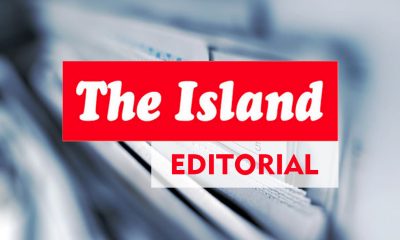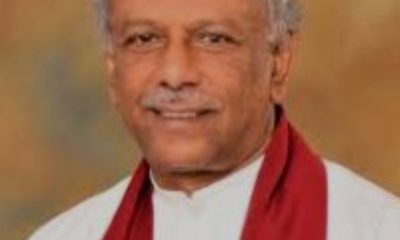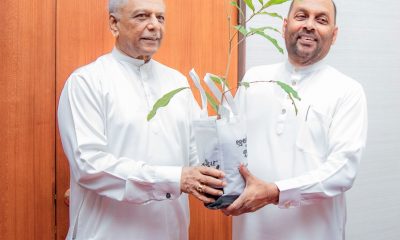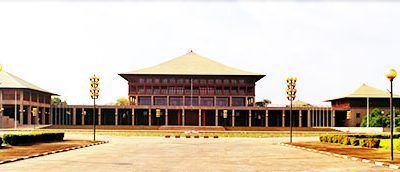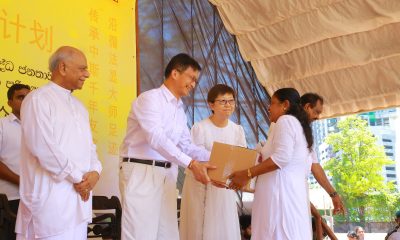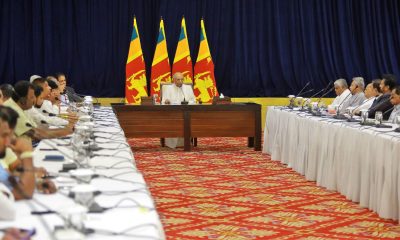News
The country requires a strong Executive Presidency to navigate the Post-Covid world says Milinda Moragoda

Milinda Moragoda, former Cabinet Minister and founder of the Pathfinder Foundation spoke about the need for Sri Lanka to be fast and agile in order to face the economic, social and international challenges of the Post-Covid environment.
He stated that: ‘there is no disputing the fact that the country benefited from having strong executive decision-making during the early stages of the pandemic. And as a result, many lives were saved.
Disappointingly, no major political party has yet put forward a coherent governance and governing structure for the nation in their policy platforms.
‘Each has been predictably very chameleon-like when addressing issues related to constitutional and governance-structure related matters in their manifestos. This is especially unfortunate in light of the dysfunctional relationship that now exists between the Executive and the Legislature and the proven potential for gridlock, both a result of the enactment of the 19th Amendment.’
Against this backdrop, without any coherent or credible proposals thus far having been presented by any major political party, Moragoda proposes that all thoughtful Sri Lankans take up the following points for their consideration, discussion and if appropriate advocacy :
A. The establishment of a strong Executive Presidency that can act decisively and yet be ultimately accountable to Parliament. After all, the presidency is the only office elected by all Sri Lankan voters. Thus, the individual occupying this post will be implicitly accountable to all citizens, be they from Kankesanturai or Dewinuwara.
B. An independent legislature that will promulgate legislation and act as a
responsible check and balance to Executive excess. This legislature
should be elected on a first-past-the-post basis with a small percentage
of members being chosen through a proportional representation system.
This change should lead to a stable parliament where most members are
directly accountable to their constituencies and citizens. The preference
vote system which has only created chaos and in-fighting should be
dispensed with.
C. The Provincial Councils should be abolished and empowered local
councils set up to address the day-to-day issues of the citizenry.
D. An empowered Senate should be created to represent minority and
regional interests.
Moragoda further pointed out that ‘Forty-two years have passed since the establishment of Sri Lanka’s Executive Presidency and that all those who criticize this form of government have still not been able to convince Sri Lankans of any better option. Notably, when the opportunity for abolishing the presidential system presented itself in 2015, the then government was unable or unwilling to conduct a referendum to abolish the presidency. And, as we are now on the verge of facing the most challenging period in our post-Independence history, the need of the hour is a strong executive.’
To lend further context to his point he noted that: ‘The first conception of a Presidential system was forged in the late 18th century after the American war of Independence against the British. Extensive debates surrounding the extent of the powers of an Executive Presidency took place during the drafting of the American Constitution. One of the founding fathers and authors of the US Constitution, Alexander Hamilton, argued for a strong Executive leader making the point that:
” ‘A feeble Executive implies a feeble execution of the government. A feeble execution is but another phrase for a bad execution, and a government ill-executed, whatever it may be in theory, must be, in practice, a bad government.’”
‘In the final analysis Sri Lanka cannot afford to have a crippled government especially at this critical juncture where a large number of lives and livelihoods are at stake.
Latest News
Severe traffic reported on Ella-Wellawaya road due to inclement weather

Police urge motorists who intend to use the Ella – Wellawaya Road to use alternative roads as there is a severe vehicle congestion due to inclement weather condition.
Latest News
We should start working collectively to rebuild the country -PM
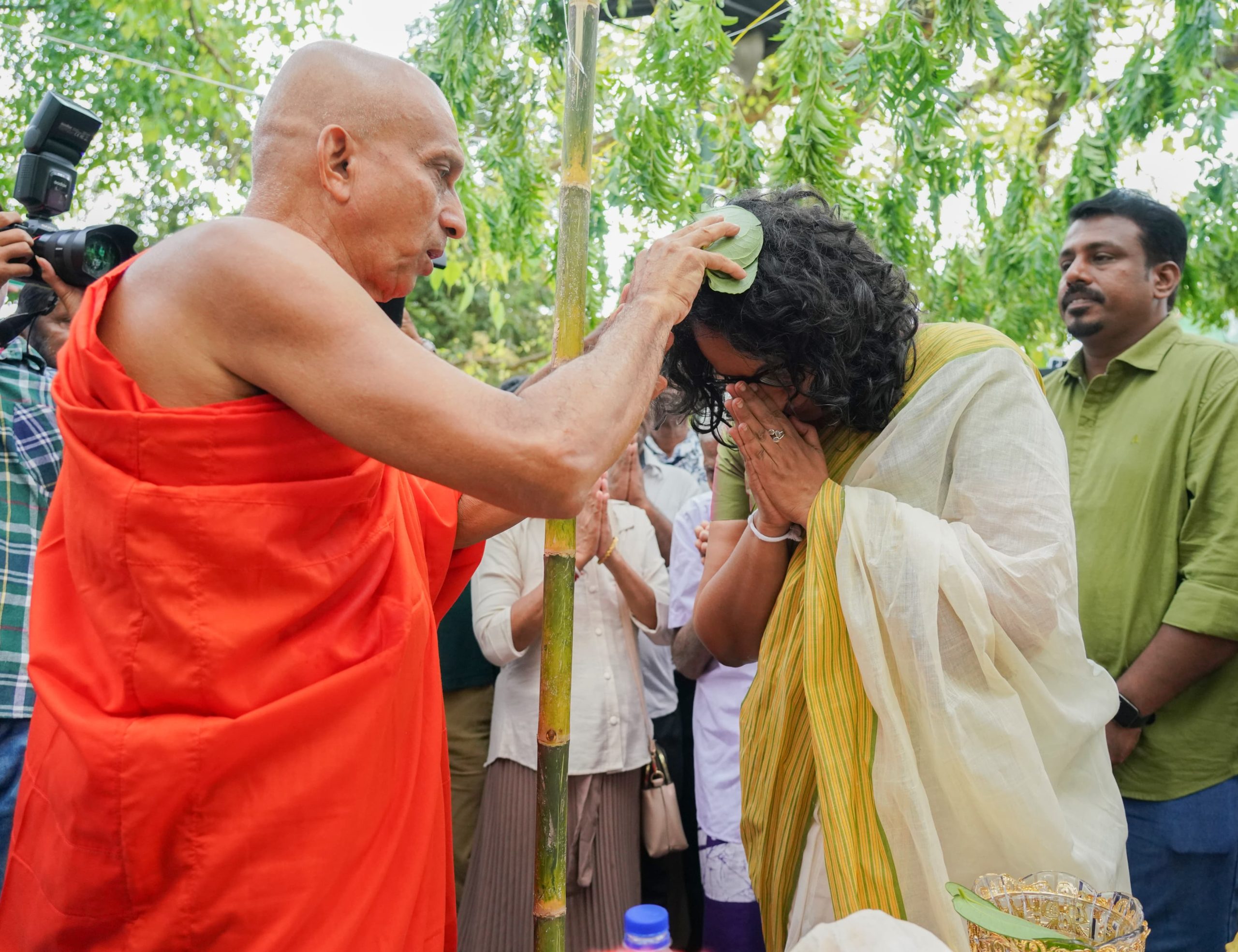
The oil anointing ceremony for the Sinhala and Tamil New Year was held on April 16 at the historic Rajamaha Viharaya in Kolonnawa, with the participation of Prime Minister Dr. Harini Amarasuriya.
Following the chanting of pirith, the oil anointing ritual was carried out at the auspicious time of 9:04 a.m., by the Chief Incumbent of the temple, Venerable Kolonnawa Dhammika Thero.
Speaking after the ceremony the Prime Minister said that:
“The Sinhala and Tamil New Year is one of the most important festivities in our country. It is a celebration with our families, reflecting our traditions and customs while strengthening the ties.
This festival leads the path for renewing unity, love, and bonds stronger. These values enrich a country. Development of a country is not limited by one-dimensional; a true development includes spirituality, relationships, and connections. The reason why we uphold these customs in such ceremonies is to remind ourselves of the significance and to pass on their value to future generations.
Therefore, today marks a significant day. Throughout this week, we came together and engaged in various activities. Followed by, the next event will mark the leaving for employment at the auspicious time and we should start working collectively to rebuild the country.
I wish everyone a New Year that is prosperous, peaceful, joyful, full of strengthened relationships, and most importantly, safe for all.”
The ceremony was graced by the presence of the Maha Sangha, and attended by the Deputy Minister of Youth Affairs Eranga Gunasekara, Divisional Secretary to Kolonnawa Priyanath Perera, Municipal Secretary Nelum Kumari Gamage, and the residents of the area.
[Prime Minister’s Media Division]
Latest News
Heat Index at ‘Caution Level’ at some places in Northern, North-central, North-western, Western, Southern and Eastern provinces and in Rathnapura and Monaragala districts today [16]
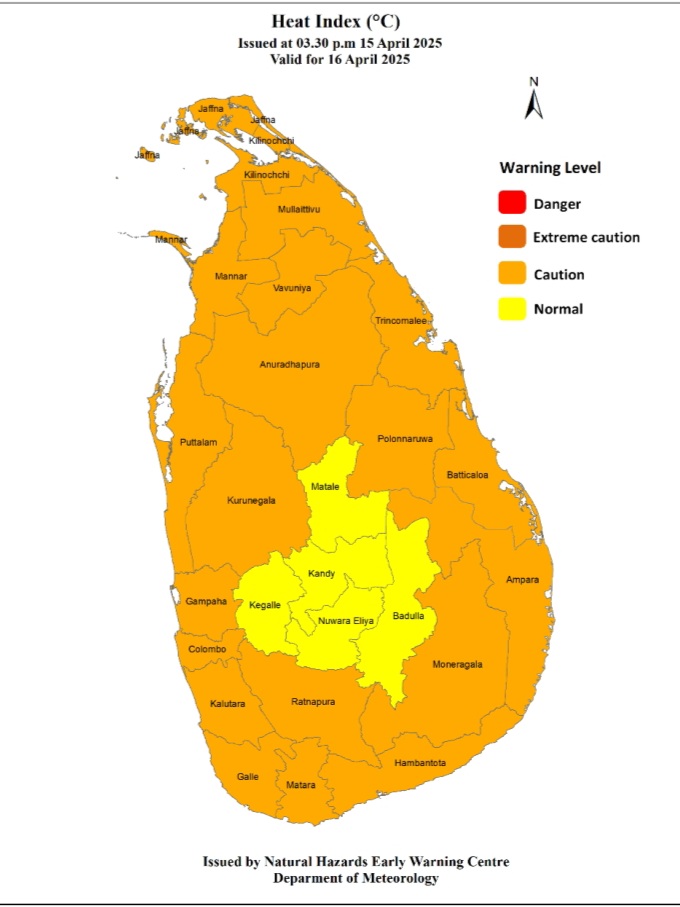
Warm Weather Advisory Issued by the Natural Hazards Early Warning Centre of the Department of Meteorology for 16 April 2025
The Heat index, the temperature felt on human body is likely to increase up to ‘Caution level’ at some places in Northern, North-central, North-western, Western, Southern and Eastern provinces and in Rathnapura and Monaragala districts.
The Heat Index Forecast is calculated by using relative humidity and maximum temperature and this is the condition that is felt on your body. This is not the forecast of maximum temperature. It is generated by the Department of Meteorology for the next day period and prepared by using global numerical weather prediction model data.
Effect of the heat index on human body is mentioned in the table below and it is prepared on the advice of the Ministry of Health and Indigenous Medical Services.
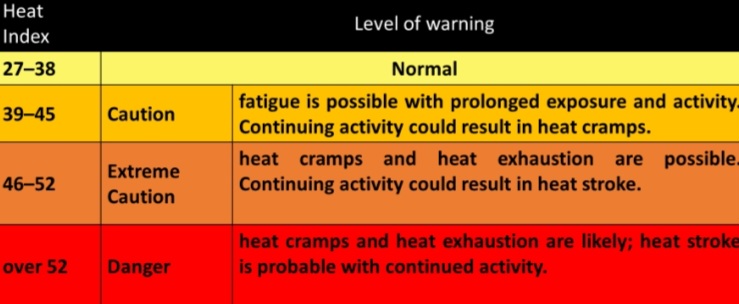
ACTION REQUIRED
Job sites: Stay hydrated and takes breaks in the shade as often as possible.
Indoors: Check up on the elderly and the sick.
Vehicles: Never leave children unattended.
Outdoors: Limit strenuous outdoor activities, find shade and stay hydrated. Dress: Wear lightweight and white or light-colored clothing.
Note:
In addition, please refer to advisories issued by the Disaster Preparedness & Response Division, Ministry of Health in this regard as well. For further clarifications please contact 011-7446491.
-

 News5 days ago
News5 days agoSuspect injured in police shooting hospitalised
-

 Features6 days ago
Features6 days agoRobbers and Wreckers
-

 Business6 days ago
Business6 days agoBhathiya Bulumulla – The Man I Knew
-

 Business5 days ago
Business5 days agoSanjiv Hulugalle appointed CEO and General Manager of Cinnamon Life at City of Dreams Sri Lanka
-

 Business7 days ago
Business7 days agoNational Anti-Corruption Action Plan launched with focus on economic recovery
-

 Features4 days ago
Features4 days agoLiberation Day tariffs chaos could cause permanent damage to US economy, amid global tensions
-
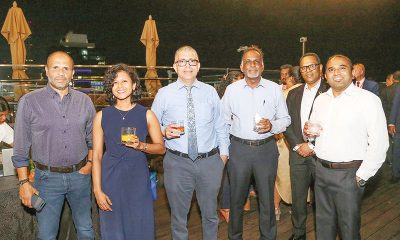
 Business4 days ago
Business4 days agoMembers’ Night of the Sri Lanka – Russia Business Council of The Ceylon Chamber of Commerce
-
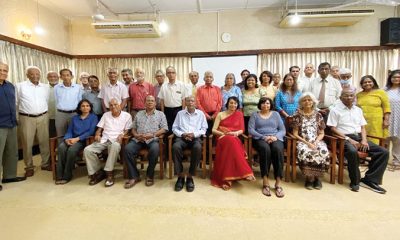
 Features4 days ago
Features4 days agoMinds and Memories picturing 65 years of Sri Lankan Politics and Society

